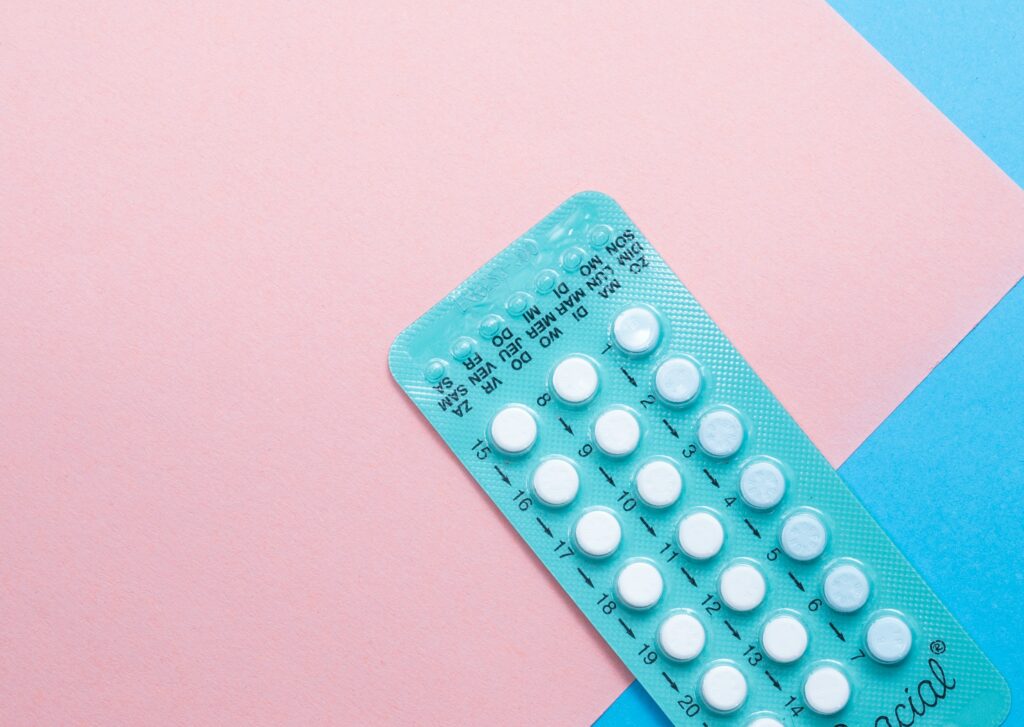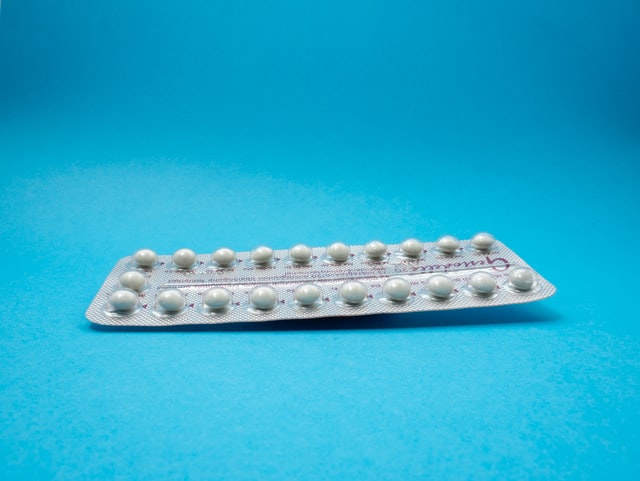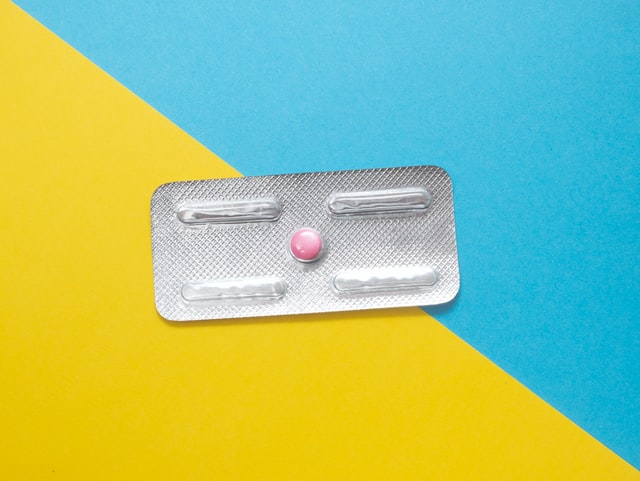There are many contraceptive methods available from which you can opt for. While the type of contraception you choose is a personal decision based on factors such as medical history and medications you are on, you may want to consider contraceptive pills as your birth control method.
What are contraceptive pills?
The contraceptive pill, or birth control pill is a hormonal contraceptive method used to prevent pregnancy. It’s often referred to as ‘the pill’ because of its form and comes in a pack from which you take one pill once a day.
Contraceptive pills are affordable, safe and effective if you take them consistently each day at the same time. Additionally, the pill also offers a number of other health benefits in addition to preventing pregnancy.

Types of birth control pills
Following are the two types of oral contraceptive pills:
- Combination pills contain estrogen and progestin hormones. These pills have a standard dosing schedule with active and inactive pills and can be further categorized into monophasic or multiphasic pills.
- Progestin-only pills are also known as the minipill and contain only the progesterone hormone. They do not contain any estrogen and do not have any inactive pills. Progestin-only pills are the go-to option for women who are unable to take estrogen because of health issues.
For more information on the different types of birth control pills available, read ‘What are the Different Options for Oral Contraceptives?’
How do contraceptive pills work?
Pregnancy occurs when sperm from the man fertilizes the egg released by the woman’s ovaries. The fertilized egg then implants itself on the uterus where it grows into a fetus.
Ovulation (the release of the egg from the woman’s ovary) and implantation is controlled by certain hormones in the body.
Hormonal contraceptives such as birth control pills contain estrogen and progestin hormones that prevent pregnancy by inhibiting the woman’s natural hormones. Thus, contraceptive pills stop the woman’s body from ovulating. This means that there is no egg to fertilize.
Birth control pills also cause the mucus on the cervix to thicken. This blocks the sperm from traveling to the egg if for some reason ovulation took place.
Finally, the hormones contained in contraceptive pills cause the thinning of the lining in the womb or the endometrium. This makes it incredibly hard for implantation to occur and the pregnancy to continue on to the next stage if the woman’s egg was indeed fertilized.
Side effects and risks of contraceptive pills
Side effects of contraceptive pills include:
- Spotting between periods
- Nausea
- Headaches and migraines
- Weight gain
- Changes in mood
- Decreased libido
- Missed periods
- Vaginal discharge
- Breast tenderness
- Thickening of the eye cornea
Although contraceptive pills are considered safe for most women, it does come with certain risks such as high blood pressure, blood clots and certain cancers. As such, this contraceptive method might not be suitable for women with a history of heart disease, breast cancer and untreated hypertension.
Read ‘Side Effects and Risks of Contraceptive Pills – Explained’ for more details.
Benefits of birth control pills
Apart from preventing pregnancy, oral contraceptive pills also offer several other benefits including lessening and preventing:
- Acne for clearer skin
- Ovarian cysts
- Ovarian cancer
- Cysts in your breasts
- Anaemia
- Premenstrual syndrome (PMS)
- Bone thinning
- Risk of ectopic pregnancy
- Infections in fallopian tubes, uterus and ovaries
How effective are contraceptive pills?
If taken consistently every day, contraceptive pills are 99% effective at preventing pregnancies.
However, in reality, people do forget to take it or for some reason, miss pills.
The effectiveness of birth control pills with typical use is 91%, which means that 9 out of 100 women who are on the pill get pregnant every year.
As such, it is important to take your pills on time every day to ensure that they are maximum effective. The better you are at this, the better they will work.

What lowers the effectiveness of birth control pills?
The main reason for lowered effectiveness of the pill is not taking it as advised every day. Missed pills will cause your hormones to fluctuate and increase your chance of pregnancy. Vomiting and diarrhea for more than 2 days can also lower its efficacy.
Besides this, the following medications and supplements can render oral contraceptive pills less effective in preventing pregnancy:
- Rifampin which is an antibiotic
- Griseofulvin which is an antifungal medication
- Certain HIV medication
- Certain anti-seizure medication. Keep in mind that anti-seizure medication is also used to treat certain psychiatric disorders.
- St. John’s Wort, which is a type of herb
If you happen to take any of these medications or supplements when you’re using the pill, use a backup contraceptive method, such as condoms or foam. If you have to be on these medications long-term, consider switching to another form of birth control.
How to use contraceptive pills?
Using contraceptive pills is pretty straightforward, although they do come in a variety of formats. Combination pills come in monthly packs that follow a 21, 24 or 28-day cycle. Extended cycle pills are designed to be taken a long time and follow a 13-week cycle.
However, progestin-only pills come only in packs of 28.
Only one pill is required to be taken per day for both combination and progestin-only pills. For maximum effectiveness, the pill needs to be taken at the same time every day.
When to take contraceptive pills?
You can take contraceptive pills as soon as you have them, no matter what day of the week or which part of your menstrual cycle you are in. However, when it becomes effective depends on the kind of pill you are taking as well as when you start on it.
How soon do birth control pills work?
Birth control pills may take up to seven days before they are effective in preventing pregnancies from occurring. In order to be safe, another form of contraception such as foam or condoms should be used during this time.
If however, you are using the pill to manage abnormal bleeding or acne, you might have to wait for 3 – 4 months before you see the results.
What if I forget to take a birth control pill?
While the pill is more effective if taken perfectly, it’s not uncommon to miss a dose or two. If you forgot, take the missed dose as soon as you remember, followed by taking your regular daily dose as per the planned schedule.
Additionally, a backup contraception method should also be used until your period arrives. If you missed a few days, call a medical professional. Emergency contraceptive pills or a pregnancy test might be needed if you’ve already had unprotected sex since making the mistake with your pills.
Keeping the package your pills come in can also be very helpful. This is because most packages come with instructions on what to do if you happen to miss a pill.
Who can take contraceptive pills?
Birth control pills are mostly safe for women. However, not all women should, or can, take it. For example, they are not recommended for women over 35 who smoke. Oral contraceptive pills may also not be suitable for you if you have:
- Blood clots
- Migraine headaches
- Unexplained vaginal bleeding
- Certain types of cancers
- Serious liver or heart disease
- Unmanaged high blood pressure
If you’re unsure of having these conditions or if you are on any medication, speak to a medical professional before starting on the pill.

Can I take the pill while breastfeeding?
Yes, you can take the pill while breastfeeding. However, the progestin-only pill might be more suitable for you if you’re breastfeeding as estrogen in the combination pill may decrease milk production. Nonetheless, check with a medical professional if you plan to take the pill while still breastfeeding.
Emergency contraceptive pills
Also known as the ‘morning-after pill”, emergency contraceptive pills are taken to prevent pregnancy after having unprotected sex. They work by delaying or preventing ovulation, blocking fertilization or preventing implantation.
Emergency contraceptive pills side effects
Side effects that might occur after taking emergency contraceptive pills include:
- Stomach aches
- Headaches/dizziness
- Nausea and vomiting
- Breast tenderness
- Irregular bleeding
- Changes to your next period
When to take emergency contraceptive pills?
Emergency contraceptive pills can be taken in the following situations:
- You forgot to use protection during sex
- The condom broke/came off during sex
- You forgot to take your pill or made a mistake with your usual birth control
- Your partner was not able to ‘pull out’ in time
- You were forced into having unprotected sex
For more information on emergency birth control pills, read ‘What are Emergency Contraceptive Pills?’
Which contraceptive pill is the best?
As mentioned above, both combination pills and progestin-only pills offer the same efficacy. Thus, the best pill would depend on individual factors such as one’s medical history as well as if you are currently on any medications.
This method of contraception might not be suitable for you if:
- You are on anticonvulsant, or anti-tuberculous agents
- Have unexplained uterine bleeding
- Have certain liver diseases
- Have/ had breast cancer
A medical professional might also recommend that you opt for progestin-only pills rather than combination pills if:
- You have recently given birth
- You are an active smoker and are over 35 years of age
- Uncontrolled high blood pressure
- Have blood clotting disorders
- A history of heart disease, stroke or migraines with aura
- Have complications related to diabetes
Does the pill protect against STDs?
Unfortunately, the pill does not protect against sexually transmitted infections. However, using condoms does lower your chances of getting STDs. You can use both contraceptive pills and condoms together to prevent STDs and pregnancy.
Where to buy contraceptive pills in Singapore?
You can purchase contraceptive pills in pharmacies with a sign-off from a medical professional. You can also purchase both birth control pills and emergency contraceptive pills online from Ova a direct telemedicine provider.
All you need to do for your contraceptive pills to be delivered discreetly to your door is fill in a questionnaire to find a suitable plan and speak to someone from our medical team online.
Conclusion
These pills are one of the most popular contraceptive methods due to their simplicity, effectiveness as well as the added health benefits. If you’re considering birth control pills as a contraceptive method, do speak to a medical professional before you take them to ensure that it does not present any health risks for you.